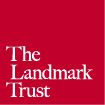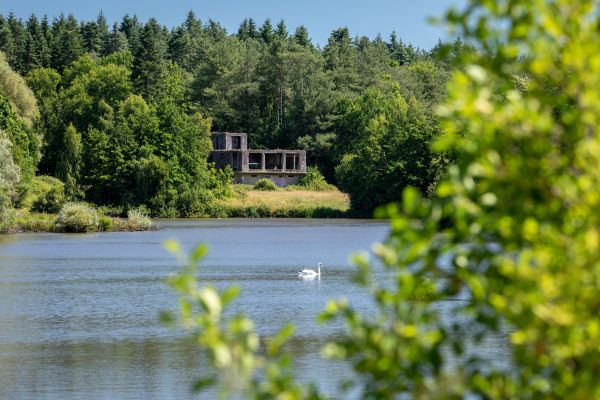Stories of great courage
One of the true privileges to come from our latest appeal to rescue RAF Ibsley Watch Office in Hampshire has been the sharing of wartime memories by our supporters. Our hope to save this important fragment of wartime history and remember the brave people who once worked and flew here has undoubtedly struck a chord. This is history still just within reach for so many of us. We are delighted to be able to share some of those stories now.
Shared by Marcia Brocklebank
‘My brother, USAAF Second Lieutenant Richard A. Early, 415th Fighter Group piloted a Black Widow night fighter. After being demobbed, he volunteered for one last mopping-up sortie over France and on 24th April he lost his life. He received the Distinguished Flying Cross, Air Medal with Four Oak Leaf Clusters and the Purple Heart for his service. Glamorous and brave, the USAAF was in the process of making a recruitment film about him and his squadron when the war ended. He may well have flown his last mission from Ibsley.’

Shared by John Harwood
‘Both my parents served in the RAF during the Second World War, this donation is in their memory. They served at RAF stations on the South Coast during the early years when Luftwaffe 'hit and run' raids were a common occurrence. My mother, Gay, joined the WAAF in 1941 and worked in radar, while my father, Dennis (pictured), had joined the year before and served in the police and security branch.’

Shared by Anne Wilkinson
‘My father, Trevor Hodgson, flew for the RAF in the Second World War. Luckily, he survived, unlike so many. His brother, my uncle Joe, also volunteered to join the RAF. He had poor eyesight and was turned down originally but decided he would not let this deter him, so he memorised the eyesight test board, applied again and passed with flying (no pun intended!) colours. Sadly, his determination and courage were for nothing - he was killed during a training exercise.’

Shared by Belinda Canning
‘My father Richard Austin was in 193 squadron from 1944-45 and was a Spitfire and Hurricane pilot. He may even have flown from Ibsley.’

Shared by Arlene Coulson
‘My late husband’s father Kenneth was in the RAF. I do know that Ken's poor sight would not have permitted him to fly and I believe he worked with radio signals. These are his discharge papers. My husband loved visiting old airfields and I know he would have supported this appeal too.’

Shared by Teresa Greene
'This donation is in memory of my Grandfather Robert Hyde and Squadron Leader JPD Gelhin, DFC. Robert Hyde served in ARP (Air Raid Precautions) during the Second World War and was stationed near Ibsley. Whilst reporting for duty, cycling through the New Forest towards Ower with his friend and accompanied by his spaniel Bob, Bob suddenly became very agitated, causing both Robert and his friend to fall into a ditch. Simultaneously, a German bomb (later told it was a doodlebug) landed in Ower. Robert always said that Bob’s hearing saved their lives!’

Shared by Julian Browne
‘Both my uncles were RAF pilots killed in action during the war; Squadron Leader Robert Gray and his younger brother Flying Officer Anthony Gray.’

Shared by Janice Beardsell
‘My father Henry Park was exempted from military service as he worked on the family farm but after his twenty first birthday he left home and enlisted in the RAF. His training for Bomber Command took place in Canada. He trained to be a bomb aimer and co-pilot, and took these images from his plane as part of their target photography. Once back in the UK, he was enrolled in 199 Squadron and eventually stationed at North Creake in Norfolk. Luckily for my father, he and his crew survived and he returned home to work on the farm.’

Shared by Peter Rees
‘My father served in the RAF between 1941 and 1946 and served at Ibsley from June 1943 to May 1944. He was a Band Sergeant responsible for music and entertainment on the base, providing relaxation and raising morale. He saw lots of different squadrons go through the base and was there at the same time as a large contingent of American personnel. He is shown here on the right with some crew at Ibsley.’

Shared by Derek Jacobs
‘I remember seeing The First of the Few as a child during the war. It left an indelible mark on me.’



